
Like human nails, a rabbit’s teeth will keep growing. However, if their teeth grow too long, the rabbit can experience difficulties eating, leading to various health problems.
In this blog post, we’ll explore everything you need to know about rabbit teeth and how to ensure that your furry friend’s pearly whites remain healthy and strong.
We’ll cover topics such as the number of teeth a rabbit has, the importance of offering a healthy diet and chew toys and scheduling regular veterinary checkups.
The three main areas of ensuring your rabbit has healthy teeth are:
The most significant issue to watch out for is the rabbit’s loss of appetite, which can quickly lead to weight loss and other health problems. Additionally, overgrown or unhealthy teeth can cause infections that may spread to other parts of the rabbit’s skull.
Rabbit teeth are unique compared to other mammals. Unlike most other animals, rabbits have continuously growing teeth throughout their lives. This means their teeth never stop growing, and they must constantly wear them down through chewing and grinding.
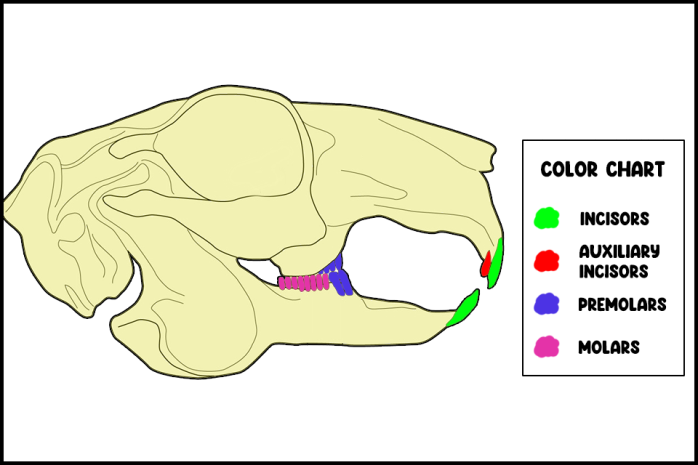
Rabbits have four incisors, two on the top and two on the bottom, used for biting and cutting food. They also have molars in their mouth for grinding and crushing food. These teeth are rooted deep in the rabbit’s jawbone and are responsible for maintaining the shape of their face.
Adult rabbits have 28 teeth, which include 6 incisors and 22 cheek teeth. The incisors are located at the front of the mouth and are used for biting and cutting food.
The cheek teeth, also known as molars and premolars, are located at the back of the mouth and are responsible for grinding and crushing food.
Due to their unique dental anatomy, rabbits are prone to several dental problems. Some common dental problems that rabbits face include:

As rabbits have open-rooted teeth (Meaning they continuously grow throughout life), they are prone to Malocclusion.
Malocclusion is when the rabbit’s teeth do not wear down properly and grow too long. This can cause a misalignment of the teeth, making it difficult for the rabbit to chew food properly. Overgrown teeth can also cause pain, abscesses, and infections.
A tooth spur is a sharp edge that forms on a rabbit’s tooth. This can be caused by tooth trauma or teeth that are not worn down properly.
If left untreated, tooth spurs can cause many problems for your rabbit. They can make eating difficult for your rabbit, as the sharp edges can cause pain and discomfort.
This can lead to decreased appetite, weight loss, and malnutrition, leading to GI Stasis. In addition, tooth spurs can cause sores and abscesses in your rabbit’s mouth, which can become infected if left untreated.
Prevention is key when it comes to tooth spurs. Providing your rabbit with a healthy diet high in fiber can help keep their teeth healthy and prevent tooth spurs from forming. You can also offer your rabbit chew toys and hay cubes to help them wear down their teeth naturally.
Regular dental checkups can also help detect tooth spurs early and prevent them from becoming more serious.
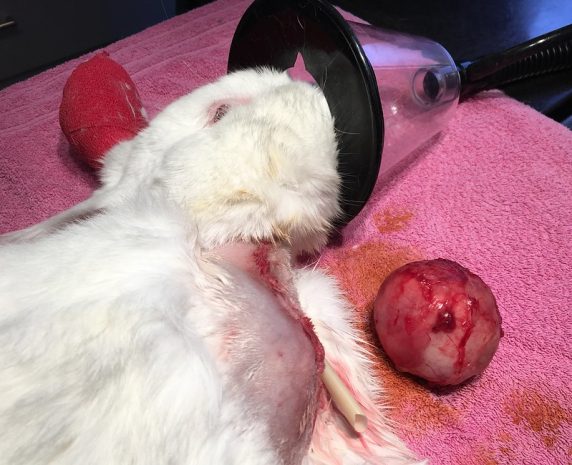
Abscesses are a common dental problem in rabbits. They are caused by bacteria that enter the rabbit’s mouth through a cut or injury. Abscesses can form in the gums, cheeks, or tongue and can cause pain, swelling, and fever.
Keeping your Rabbits teeth healthy isn’t that hard. It simply requires consistency and regular checks to ensure they aren’t overgrowing. Here are some tips for maintaining your rabbit’s dental health:
Providing a healthy diet is one of the most important things you can do to keep your rabbit’s teeth healthy. Rabbits need a diet that is high in fiber to help wear down their continuously growing teeth and prevent dental problems.
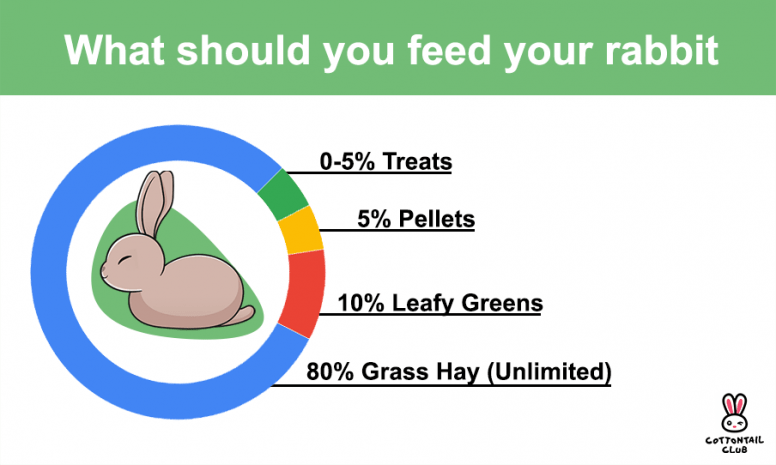
The best diet for a rabbit consists of hay, fresh vegetables, and a small amount of pellets. Hay should make up most of your rabbit’s diet, as it is high in fiber and helps wear down their teeth naturally. Timothy hay is a popular choice due to how crunchy and tough it is, but other types of hay, such as orchard grass or meadow hay, can also be suitable.
If your rabbit prefers other hays like Meadow Hay, try mixing that hay with Timothy hay to help promote healthy bunny dental care.
Chew toys are a great way of maintaining your rabbit’s dental health. Rabbits have continuously growing teeth that can cause problems if they are not worn down regularly. Chew toys provide a natural way for rabbits to wear down their teeth and prevent dental problems.
When selecting chew toys for your rabbit, choosing ones that are safe and appropriate for rabbits is essential. Avoid toys made of materials that can be harmful if ingested, such as plastic or rubber. Instead, choose toys made of natural materials, such as wood, hay, or apple sticks.
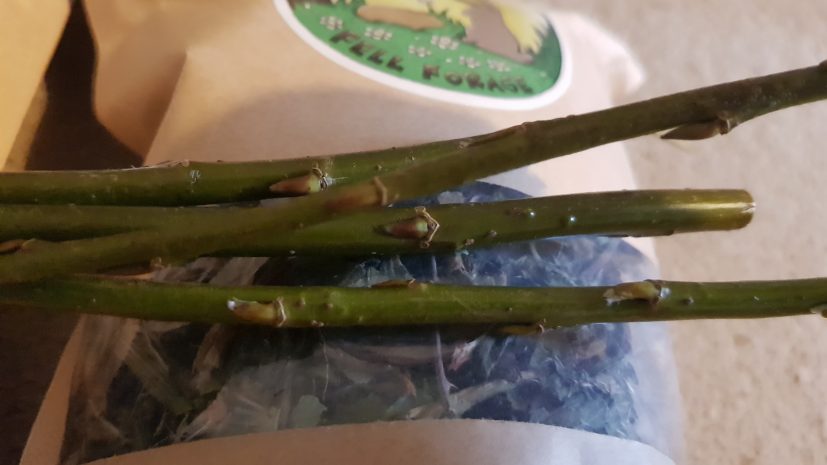
Wooden blocks and balls are popular chew toys for rabbits, as they are hard and durable and can provide hours of entertainment. Apple sticks are also a great option, as they are safe for rabbits to chew and provide a natural source of fiber.
Hay cubes can also be offered as a chew toy, as they are high in fiber and help wear down your rabbit’s teeth naturally. You should
You should ensure your rabbit has plenty of opportunities to exercise and explore their environment. Providing your rabbit with a large, spacious living area with plenty of room to run and play can help prevent boredom and provide opportunities for natural chewing behavior.
Remember to supervise your rabbit while playing with chew toys and replace them if worn or damaged. Providing a variety of chew toys can also help prevent boredom and keep your rabbit’s teeth healthy and strong.
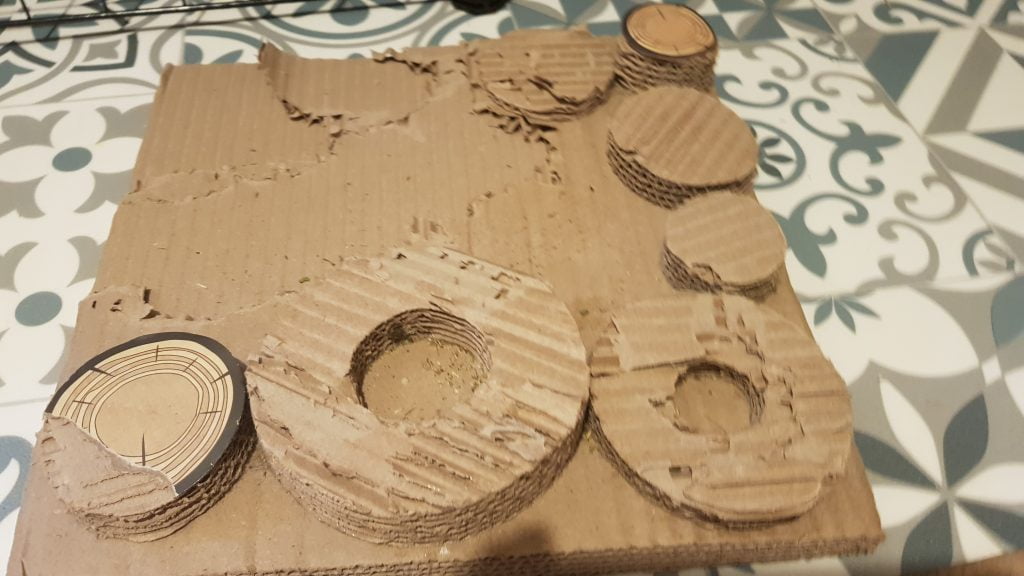
Scheduling regular veterinary visits is essential to maintaining your rabbit’s dental health. During these visits, your veterinarian can examine your rabbit’s teeth and detect any dental problems early before they have a chance to become more serious.
During a dental exam, your vet will check for signs of overgrown teeth, tooth spurs, abscesses, and other dental problems. They may also perform a dental cleaning to remove plaque or tartar buildup on your rabbit’s teeth.
If your rabbit is experiencing dental problems, your vet may recommend additional treatments, such as filing down overgrown teeth, administering antibiotics for abscesses or infections, or extracting teeth if necessary.
While dental procedures can be uncomfortable for rabbits, they are typically done under anesthesia to ensure that the rabbit remains still and does not experience pain or discomfort. Anesthesia also allows the veterinarian to perform the procedure more safely and effectively.
In some cases, rabbits may make a soft grunting or grinding noise during a dental procedure, which can be mistaken for screaming. However, this is normal for rabbits and is not a sign of distress or pain.
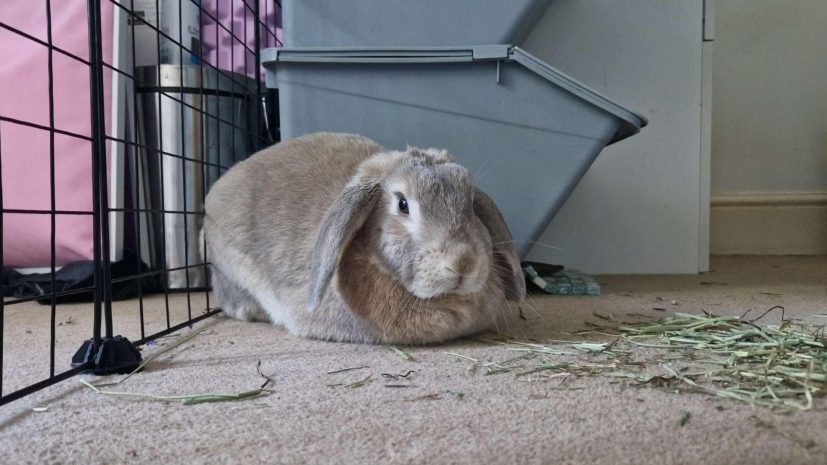
Changes in your rabbit’s behavior, such as decreased appetite, drooling, or pawing at the mouth, can indicate dental problems. If you notice these signs, you should take your rabbit to the vet immediately.
In conclusion, keeping your rabbit’s teeth healthy is essential for their overall health and well-being. By understanding their dental anatomy, common dental problems, and how to prevent them, you can help your rabbit live a happy and healthy life.
Performing an at-home dental checkup can help you detect and prevent dental problems from becoming more serious. Here’s how you can perform an at-home dental checkup for your rabbit:
If you notice any signs of dental problems during your at-home checkup, schedule a veterinary appointment as soon as possible.
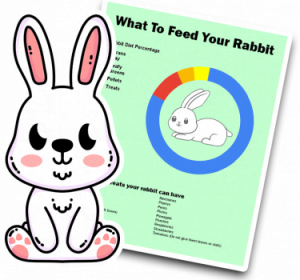
By entering your email address you agree to receive emails from Cottontailclub. We'll respect your privacy and you can unsubscribe at any time.